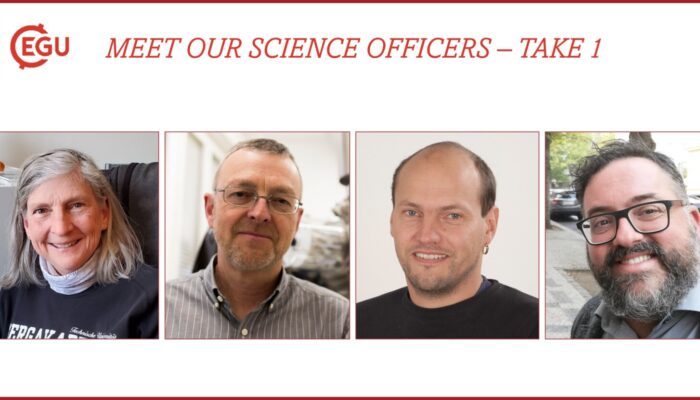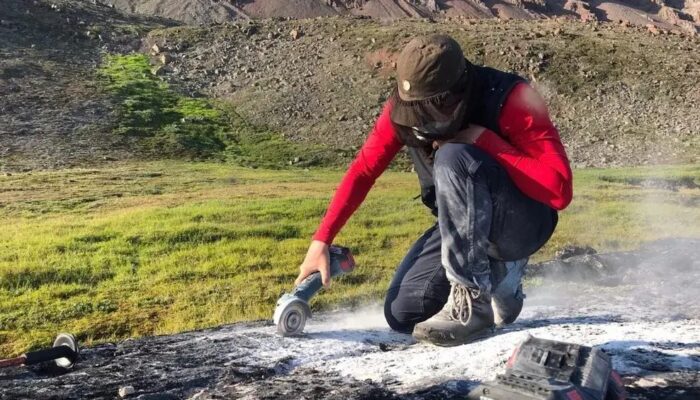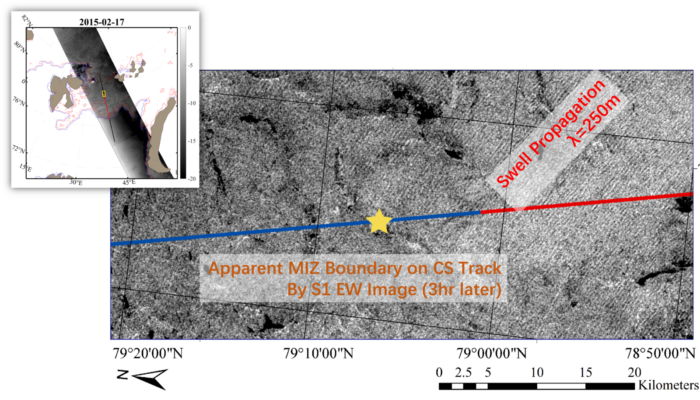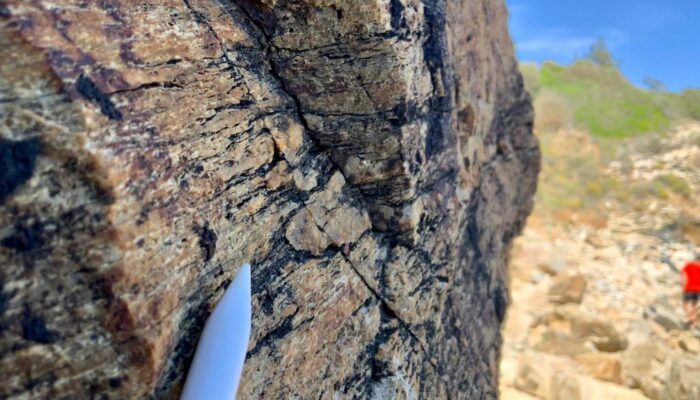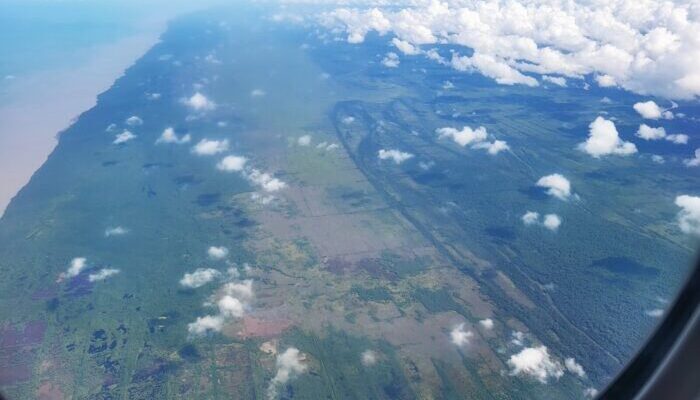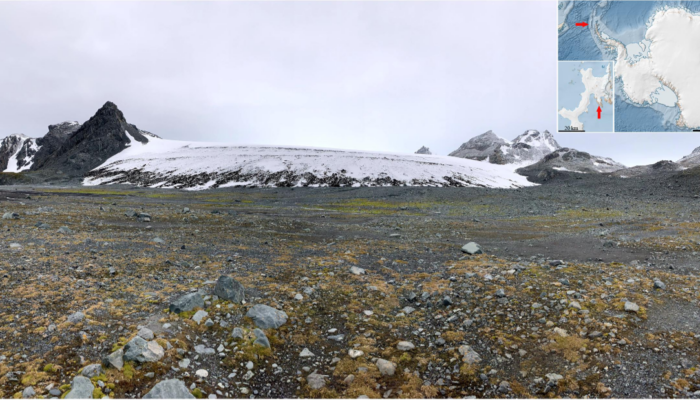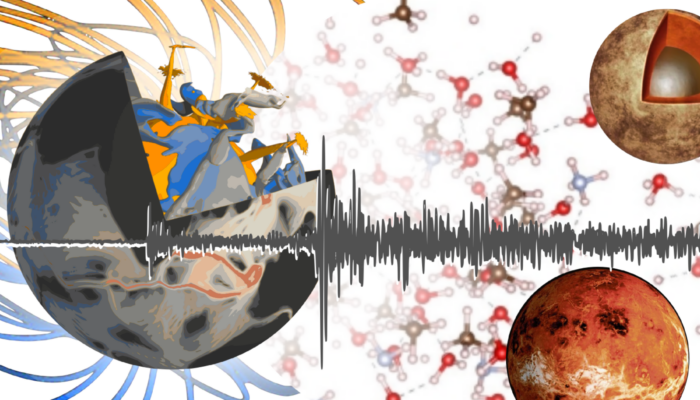Once a year, GMPV enthusiastic scientists from all over the world gather around in Vienna for the fabulous EGU General Assembly, where very exciting and ground breaking science is presented to peers. While for some, the EGU may be reduced into a solid crazy week at the GA, for others is a year-round duty. The existence of the GMPV Division science officers ensures that every year GMPV’s earl ...[Read More]
Geomorphology
A Day in the Life – Gerald Raab
This blog post is part of our series: “A day in the life of a geomorphologist” for which we’re accepting contributions! Please contact one of the GM blog editors, Emily or Emma, if you’d like to contribute on this topic, or others. by Gerald Raab, Postdoctoral Fellow, Dalhousie University in Halifax, Canada Twitter: @gr_science | Email: gr.science@gmx.at Chasing landscape chronometers Someh ...[Read More]
Cryospheric Sciences
A journey to the Edge of the Ice: Discovering How the Ocean Meets the Polar Sea Ice
Let’s continue the journey of discovering cool facts about sea ice which started with breaking the ice. This time, we’re diving into a fascinating part of the Arctic and Antarctic: the Marginal Ice Zone (MIZ). Imagine a place where the vast, frozen world of sea ice meets the moving waters of the ocean underneath. This is the MIZ, a unique area where air, water, and ice mix and mingle. ItR ...[Read More]
Geochemistry, Mineralogy, Petrology & Volcanology
How can fossil Geothermal System enhance Present Exploration?
Geothermal resource development faces a major obstacle: the expensive exploration process. Unsuccessful drilled wells can discourage interest and disrupt economic plans. Understanding the relationship between geologic structures and geothermal fluid flow is critical to successful exploration. Various methods, such as geochemistry, geophysics, structural analysis and modeling, aim to create a relia ...[Read More]
Geodynamics
Exploration of Deep Earthquakes and Planetary Interiors
Most earthquakes on Earth start in the shallow, brittle part of the planet. However, there are several regions where earthquakes happen deep in the mantle. Where are these regions? Why do these earthquakes get so deep? In this week’s blog post, Ayako Tsuchiyama from the Massachusetts Institute of Technology (MIT) takes us on a journey into the mysterious world of deep earthquakes. Growing u ...[Read More]
Natural Hazards
Earth Citizens and Natural Hazards: a few words from the perspective of our environment, the inhabited planet, Earth
In January 2023, I visited the Amazon Forest in Suriname. During my visit, I met indigenous people known as the Saramaccers, a Maroon tribe residing in the heart of the Amazon Forest. I found it fascinating that the Saramaccers consider themselves an integral part of nature. Their motto is ‘If you respect nature, nature will be your friend and stand by you’. Nature extends a helping ha ...[Read More]
Cryospheric Sciences
Antarctica Uncovered: Exploring the Exposed Surfaces Around the Melting Continent
In 2020, ocean scientists discovered a new island off the Pine Island Glacier ice shelf, naming it after the Norse goddess, Sif. The island is one of many new regions being exposed in the wake of increased ice shelf melting and glacial retreat. While these newly-revealed lands have been discussed in the Arctic and alpine ecosystems, the uncovered island and coastlines of Antarctica have been less ...[Read More]
Seismology
What is Distributed Acoustic Sensing?
In this blog we give a succinct introduction to Distributed Acoustic Sensing for the starting seismologist, or the interested reader. The blog is by no means a complete overview and serves as a starting point for you to understand DAS and get started with the data. It was written by SM ECS members Ana Nap and Katinka Tuinstra. By now, Distributed Acoustic Sensing (DAS) is a pretty widely kn ...[Read More]
Stratigraphy, Sedimentology and Palaeontology
Offshore Gaza: gas in deep-water sedimentary reservoir rocks as another element in the conflict
The conflict between the Israeli state and the Palestinian people revolves not only around the control of land but also extends to the ocean, particularly the sedimentary rocks beneath the seafloor (see oil and natural gas fields in the region in Figure 1). This article aims to analyse the geological aspect, specifically sedimentary rocks with hydrocarbon reservoir potential offshore the Gaza Stri ...[Read More]
Geodynamics
Geodynamica: Earth & Planets – a new diamond open access journal!
Do you want to publish and access papers for free? Do you want to improve the system by promoting equitable publishing alternatives? Then read on to learn about Geodynamica: Earth & Planets: a new community-powered Diamond Open Access Journal (DOAJ)! Join the conversation on discord by following this link. Diamond Open What? Diamond Open Access journals are peer-reviewed journals that are free ...[Read More]

